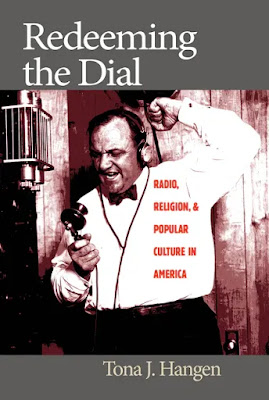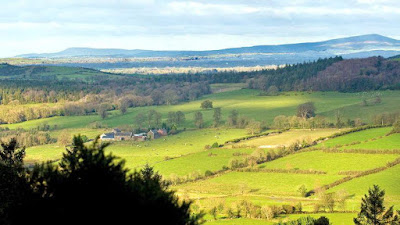Monday, May 31, 2021
My Cinemania
Friday, May 28, 2021
A Blog Post by My Father
In our humble opinion, only time can determine what is or is not "Art". Contemporary art is a nonsense, only the judgement of the generations to come can bestow the "imprimatur". And it is our earnest wish that posterity will consign most modern art to the dustbin reserved for irrelevancies. Because, and we say this in all seriousness, if what passes for art today is still around fifty years hence, then western society will have become a jungle of which the most "red in tooth and claw" predator could be proud. As proof of what we say, consider the calibre of creative geniuses who would in all probability be turned down for Arts Counil funding if they made an appearance in Merrion Square in the morning.
Wednesday, May 19, 2021
My Favourite Opening Passage of All Time
I love books. I've always loved books. I'm most definitely a bibliophile, although I'm not a connoiseur. I don't particularly get excited about first editions or the quality of bindings. In fact, being irremediably plebeian, I've always preferred paperbacks to hardbacks. They're more comfortable to hold in your hands.
I'm not a fast reader, and I'm not as well-read as I'd like to be. I wish I'd spent much, much more time reading when I was a kid. But books have always excited me in a unique way.
Whenever I find myself in a new house, I always drift towards the bookshelves, and wish I could spend more time just silently scanning them. I can rarely pass a bookshop without stopping in it.
I'm fascinated by all the aspects of a book-- the title, the dedication, the acknowledgements, the publisher's logo, the introduction, and so on.
One of the aspects that fascinates me is the opening. The curtain is pulled away and we see out the window onto-- what? It could be anything. The author addresses us for the first time, and we hear his or her unique voice, coming to us from some other time and place.
Of course, there are many famous opening lines. "It was the best of times, it was the worst of times." "Call me Ishmael". "The past is a foreign country; they do things differently there." "Gaul is divided into three parts." And let's not forget the much-mocked but inimitable "It was a dark and stormy night."
There are some not-so-famous openings that have stuck with me, too. For instance, these opening lines from Clive Baker's dark fantasy novel Weaveworld (a thumping great book that I never actually finished), which I think are worth quoting at some length:
Nothing ever begins.
There is no first moment; no single word or place from which this or any other story springs.The threads can always be traced back to some earlier tale, and to the tales that preceded that: though as the narrator’s voice recedes the connections will seem to grow more tenuous, for each age will want the tale told as if it were of its own making.
Thus the pagan will be sanctified, the tragic become laughable; great lovers will stoop to sentiment, and demons dwindle to clockwork toys.
Nothing is fixed. In and out the, shuttle goes, fact and fiction, mind and matter, woven into patterns that may have only this in common: that hidden amongst them is a filigree which will with time become a world.
It must be arbitrary then, the place at which we chose to embark.
Somewhere between a past half forgotten and a future as yet only glimpsed.
This place, for instance.
Wednesday, May 5, 2021
My Latest Article in Ireland's Own
My latest article in Ireland's Own is "The Magic of Writing", and is (I hope) a breezy piece on the creative processes and working habits of writers. It's a subject that fascinates me. It appears in the May Annual, pictured here.
I've had quite a few articles published in Ireland's Own now. My first was about newspaper letter pages (incidentally, the subject on which I wrote my college dissertation), and appeared in March 2017. Since then I've had articles on a wide variety of subjects published in it: "Slogans in Irish Life", "The Weird and Wonderful World of Sports", a look back at the Dublin Millennium of 1988, a piece on streets named after Irish people all over the world, a Christmas piece on the ghost stories of M.R. James (traditionally told and broadcast at Christmas), and a few others.
I even had a fifteen-part series on Irish lighthouses! Boy, did that take a lot of research...
I'm proud to have my articles appear in Ireland's Own. It's almost the only "family" magazine widely sold in Ireland. It's also one of very the few general interest magazines available here. The magazine shelves in Ireland (as elsewhere, I fear) are dominated by glossy women's magazines, car magazines, TV soap magazines, and other magazines which could be best described as "consumer culture and lifestyle".
Ireland's Own is also a legacy of the Irish Revival, first appearing in 1902. I've heard it described as the only survivor of a raft of similar publications which first appeared at that time.
I have happy childhood memories of reading Ireland's Own. My aunt Kitty, who lived on a farm in Limerick, had stacks of past issues. I particularly enjoyed the ghost stories. The long-running column "Stranger Than Fiction", which chronicled stories of the uncanny, gave me many pleasant chills. It's still running today!
My aunt Kitty died in 2007, but her husband is still alive. I actually only learned this very recently, and I spoke to him (on the phone) a few days ago, for the first time since my wedding in 2013. He's just turned eighty-nine. When I was a kid, summer holidays were spent on his farm in Limerick. It was a huge contrast to Ballymun and made a big impression on me. It seemed quite obvious to me that rural life and rural ways were healthier than those of the housing estate where I lived.
It even led me to a (brief) religious conversion at the age of fourteen. Mass attendance was already dropping in Dublin at this time, so it was a new and arrresting experience to see a whole village attend Mass together. The gospel text that sparked my imagination was "I am the vine, you are the branches"...which, coincidentally, is also today's gospel text. My newfound piety didn't last long on my return to Dublin, however.
When I went to my aunt's funeral in 2007, I was becoming increasingly conservative and traditional. I'd always been something of a cultural conservative, especially when it came to poetry and visual art. But, by this time, I was moving more towards social conservatism, as well. I remember standing in the church at my aunt's funeral-- the same church where I'd had my fleeting conversion-- and feeling a powerful inner conflict. I could see clearly by now that the Catholic Church was the protector of so much that I found precious, but I couldn't simply believe on this account. It took a lot of thinking and reading and (I might even say) agonizing to take that final step.
Recently, as I mentioned a few weeks ago, an elderly gentleman who I knew somewhat passed away. I had been meaning to get back in touch with him for many months. When I finally emailed him, and got no reply, I discovered I'd been too late by a matter of weeks. This motivated me to get in touch with my uncle, and I was overjoyed that the case was different this time. Deo gratias!














